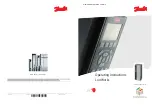
8
Befestigung des Decoders
Nach Fertigstellung aller Anschlüsse sollten Sie
den Funktionsdecoder befestigen, sofern das
Fahrzeug nicht über einen geeigneten Einbau-
raum verfügt. Dies kann z. B. mit doppelseitigem
Klebeband erfolgen.
5. Programmierung
Bevor Sie mit dem Programmieren des Decoders
beginnen, müssen die Verbraucher an den Deco
-
der angeschlossen sein, da sonst keine Rückmel-
dung zur (DCC) Zentrale erfolgen kann. Sie kön
-
nen in CV 50 einstellen, welche Ausgänge für die
-
sen Zweck verwendet werden sollen.
Wenn Sie den Decoder mit einer Motorola-Zentra-
le programmieren wollen, sollten Sie an die Aus-
gänge AUX1 und AUX2 Beleuchtungen anschlie-
ßen, da die Lok den Wechsel in den Programmier-
modus und die Übernahme der Eingaben durch
das Blinken der Beleuchtung an diesen Ausgän-
gen quittiert.
Im DCC-Format können Sie die Konfigurations-
variablen (CVs) programmieren. Die Haupt
-
gleisprogrammierung ist ebenfalls möglich. Im
Motorola-Format werden die Einstellungen in so-
genannte Register programmiert, die Zählweise
ist mit der der CVs identisch.
Programmierung mit DCC-Zentralen
Von der Zentrale aus können Sie die Konfigurati
-
onsvariablen (CVs) des Decoders programmieren.
Beachten Sie dazu den betreffenden Abschnitt in
der Bedienungsanleitung Ihrer Zentrale, in der die
byteweise Programmierung der CV-Variablen be
-
schrieben ist.
Programmierung mit Motorola-Zentralen
Stellen Sie die Lok auf ein Gleis, das mit dem
Gleisausgang der Zentrale verbunden ist. Es darf
kein weiteres Fahrzeug auf dem Gleis stehen, da
der darin befindliche Decoder sonst ggf. ebenfalls
programmiert wird.
Bitte beachten Sie:
Wenn Sie eine Zentrale einsetzen, die so-
wohl das DCC- als auch das Motorola-For
-
mat sendet, ist die Programmierung des
Decoders im DCC-Format empfehlenswert.
Sie können den Decoder nach dem Pro-
grammieren auch im Motorola-Format an-
steuern.
Führen Sie einen Reset an der Zentrale durch
(durch gleichzeitiges längeres Drücken der Tasten
„Stop“ und „Go“) oder schalten Sie die Zentrale
kurz aus und wieder ein. Wählen Sie zunächst die
5. Programming
Before starting the programming you should con-
nect some load to the decoder in order to assure
the necessary feedback from the decoder to the
(DCC) command station. You can set up in CV 50
which outputs should be used for this purpose.
Should you intend to program the decoder with a
Motorola central unit you should always connect
the lighting to the outputs AUX1 and AUX2. The
locomotive confirms the change into the program
-
ming mode and the acceptance of programming
commands by flashing the lights.
In DCC format you can program the configuration
variables (CVs). This can also be done by “Pro
-
gramming on the Main” (POM).
In the Motorola format the settings are saved in
so called registers. The method of counting is the
same as with the CVs.
Programming with a DCC command
station
You can program the configuration variables
(CVs) of the decoder from the command station.
Also take note of the relevant chapter of the man
-
ual of your command station where the byte-wise
programming of (CVs) is explained.
Programming with Motorola central
units
Put the locomotive onto a track section connected
to the central unit’s track output.
Make sure no other vehicle is located on the track
as the decoder in that vehicle will also be pro
-
grammed.
Please note:
If you use a command station supplying
both DCC and Motorola signals it is recom
-
mended to program the decoder in DCC
mode. After having completed programming
the decoder will also operate in the Motoro-
la mode.
Reset the central unit (by simultaneously push
-
ing the buttons “Stop” and “Go” for some time)
or switch off the central unit for a moment and
then on again. Next you select the current ad-
dress or address “80” (for instance, if you do not
know the current address of the decoder). The
manufacturer´s default setting is “3”. Set all func
-
tions to ”Off” (function, f1 to f4).
Push the “Stop” button at the central unit. Next,
operate the direction switch and hold it in that
position briefly while pushing the “Go” button. As


































